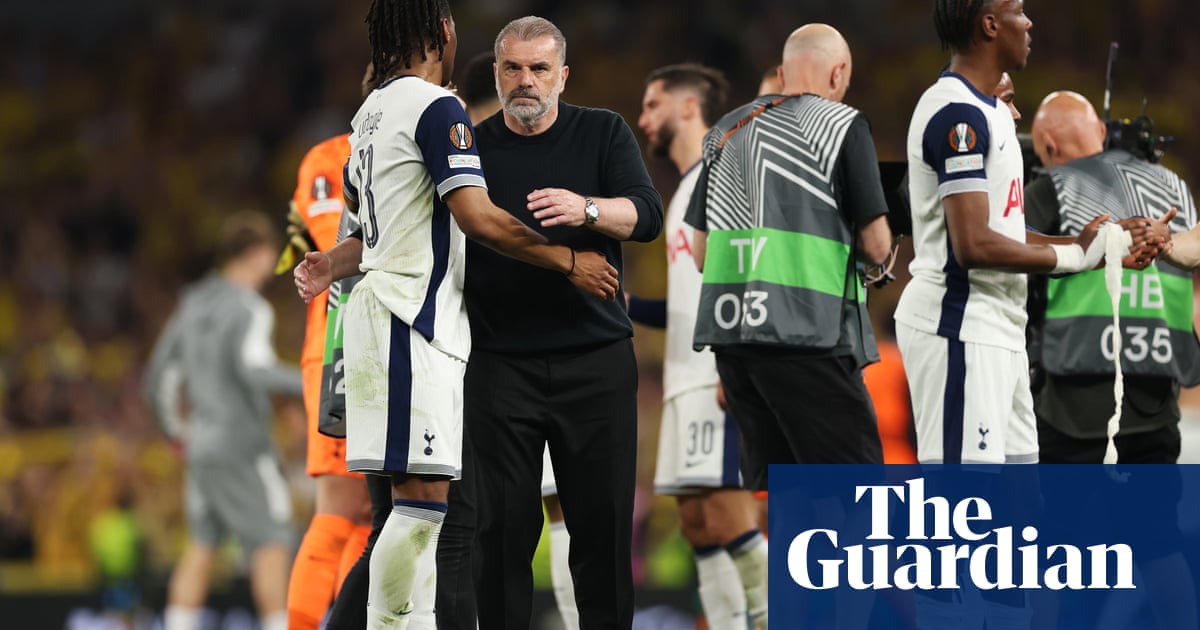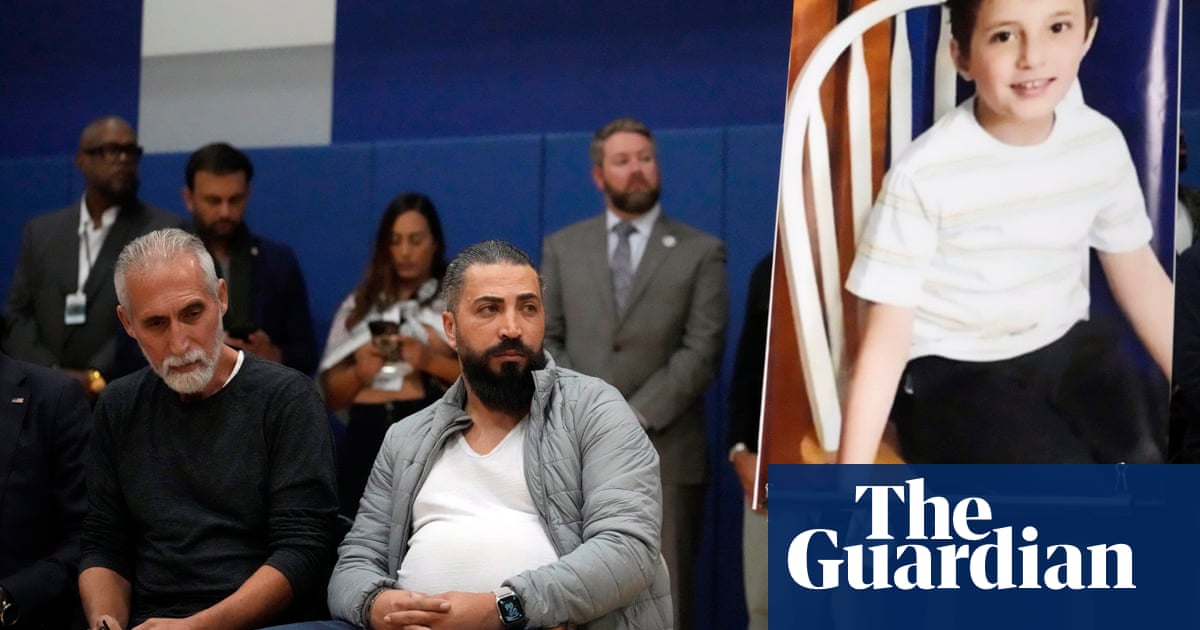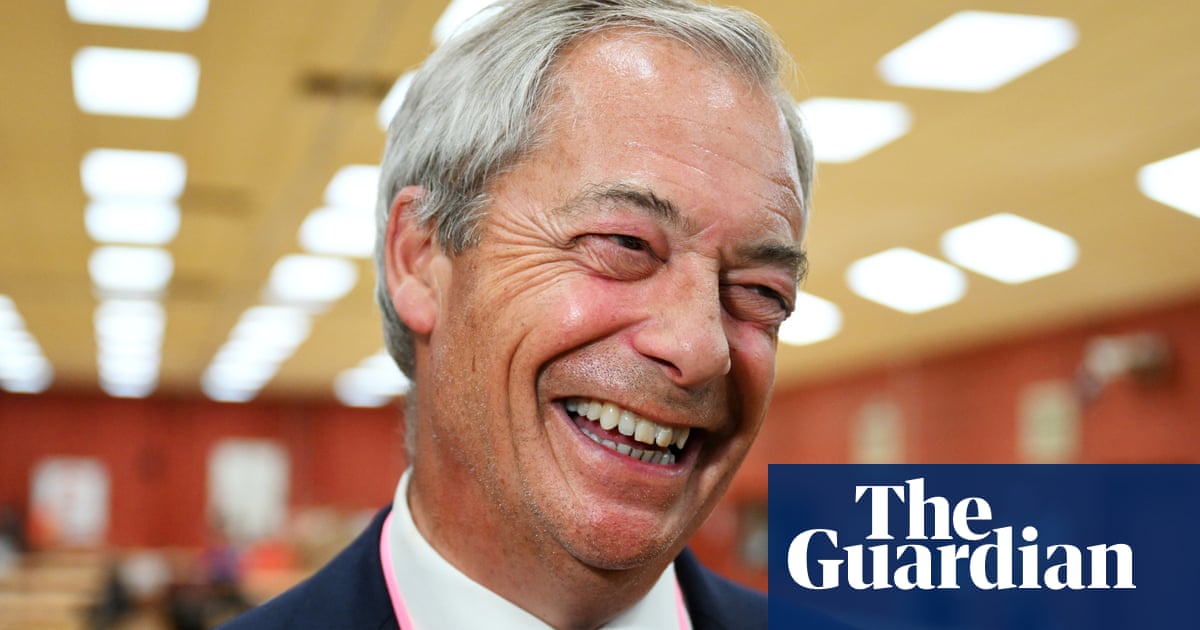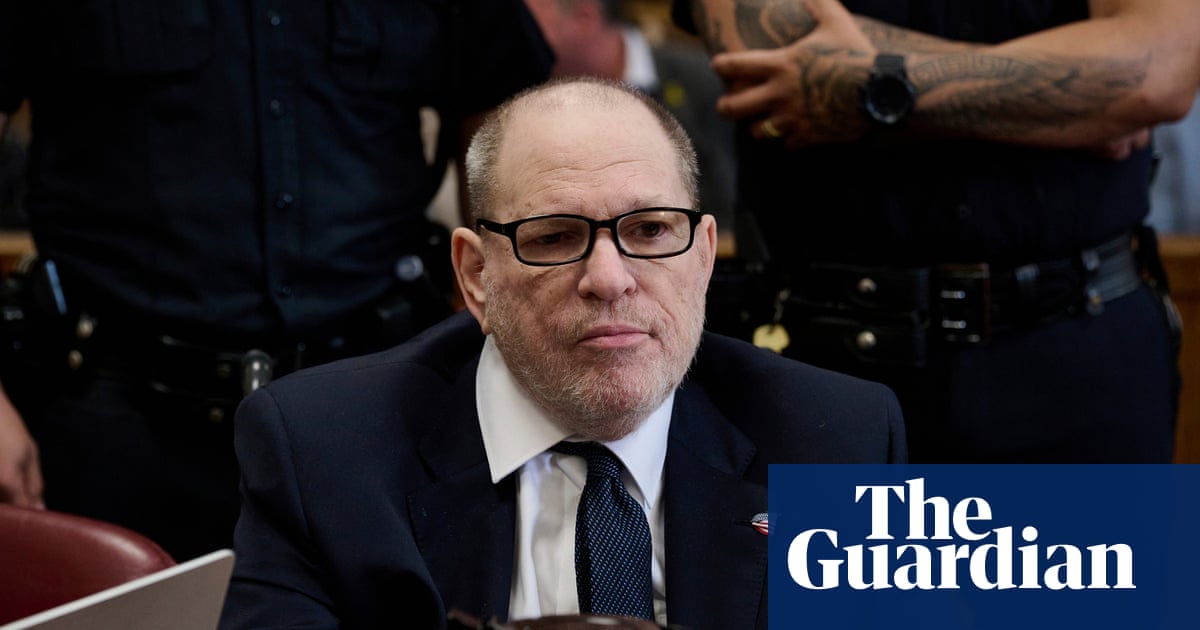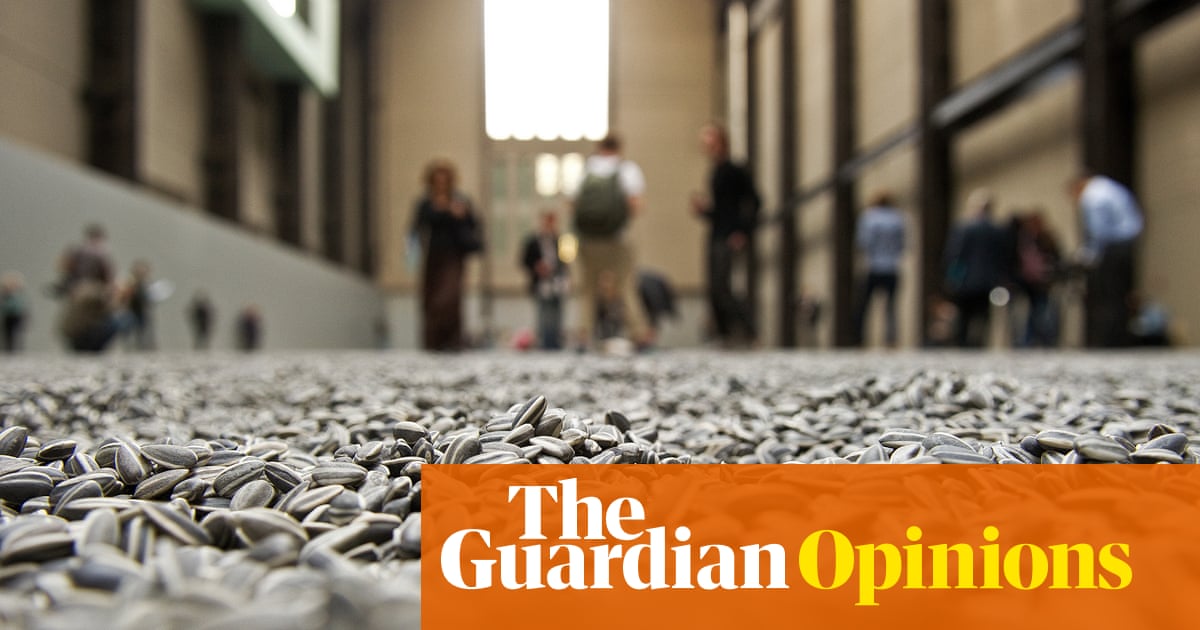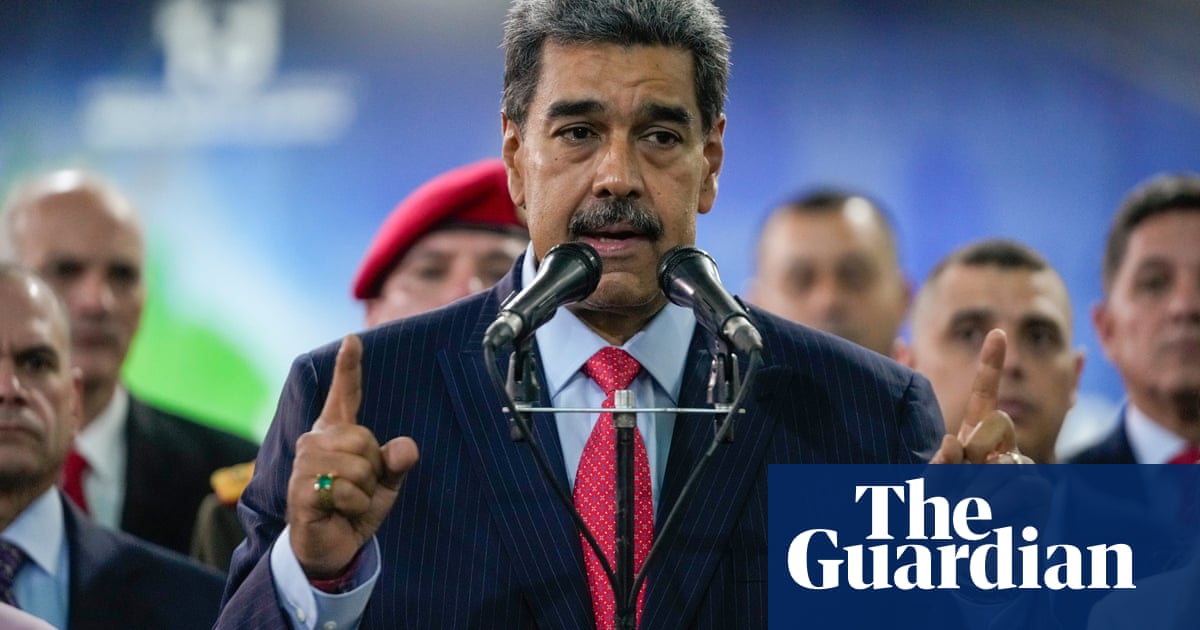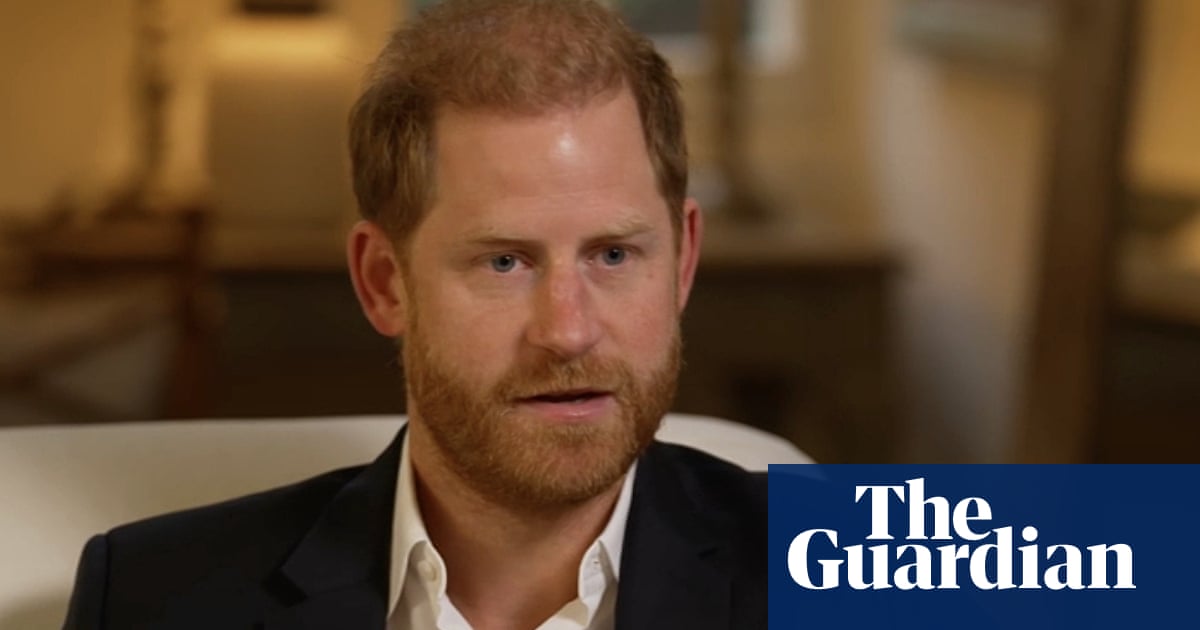I saw Sheku Kanneh-Mason’s cello case before I saw him – strapped to his back, making him taller. While we talked, the instrument sat beside us, like a temporarily silent twin. A few weeks before, though, I’d heard it sing in the Barbican, London, as he swept through Shostakovich’s first cello concerto with the Czech Philharmonic, the piece with which he won BBC Young Musician nine years ago.
It is hard to believe Kanneh-Mason is still only 26: he is touring with some of the best orchestras and conductors in the world, has an MBE, is a visiting professor at the Royal Academy of Music, and, for the two billion people who watched, is the young cellist who played at the Duke and Duchess of Sussex’s wedding.
He is also the most celebrated young Black musician in Britain, famously one of seven talented musical siblings, and was a hugely popular performer at the Last Night of BBC Proms in 2023. But when he appeared on Desert Island Discs last year, he was asked if he thought Rule, Britannia! ought to be part of the festival finale. Quietly, but without hesitation, Kanneh-Mason said: “No.”
In his debut book, The Power of Music, he recounts what happened next: “My truthful and understated remark … was greeted with an uproarious wave of censure and horror against me in the media, and an unguarded uprising of racist bile on social media.”

He had stumbled on an “ice-hard determination”, he writes – the book is a mix of autobiography and musical manifesto – to preserve a place for a deeply troubling song. Its “vigour and intent were born in Britain’s burgeoning slave trade and at the height of its thundering imperialism”, he writes.
His remark let loose a “volcano of racism”. On social media people called for him to be “tagged, flogged and deported” and to “keep [his] n***er mouth shut”. He finds it, he tells me now, “very scary and sad, how angry and aggressive people can be about attacking groups of people”. The tidal wave of hate, he says, was “disproportionate to the intensity of the comment I made. It just came from the heart. I didn’t want to attack anyone with it.”
All that, directed towards this gentle, unconfrontational young man. How did he and his family cope, I ask. “I spoke to lots of other musicians who reached out,” he says. “I find practising and playing always helpful. If there are things I am struggling with, that’s the one place I can always be. Exploring something wonderful, beautiful and interesting.” Since we spoke, the Proms programme for 2025 has been announced. He is not performing, for the first time since 2017 (pure coincidence, say the BBC and his agent).
In The Power of Music, he writes about playing in a way that is so grounded, joyous and straightforward that anyone who has had the good fortune to make music with others – choir, school band, amateur chamber group – will feel his words resonating. In his telling, his upbringing was less of a hothouse environment than one in which music was as much part of life as eating or playing football. He writes of the “energetic conversation and teasing battle” of performing duo sonatas with his eldest sibling, pianist Isata, as if music-making was an extension of the babble round the dinner table. He now flat-shares in London with his brother, violinist Braimah, and their friend Plínio Fernandes, a guitarist – he likes to come home to a busy, sociable household, he says.
Practice wasn’t lonely, even though it was done alone, because they were all doing it. “It wasn’t some big project,” he says of the family’s musicianship. “My parents love music, and they loved learning instruments as children, and so they wanted us to also do that. It became clear very quickly that Isata was very into it and enjoyed it, and then the rest of us kind of followed on from that.” He adds: “My parents also like the idea of learning something that you can do endlessly. You can constantly practise and explore and get more from music. And that’s such a universe to give a child.”
And yet, they were often the only Black children in the room, or concert hall, or masterclass. It could cut both ways, Kanneh-Mason tells me: at times, it made him “very determined to therefore be on that stage”; at other times it made him feel that he wasn’t sure he could. “But my family, and particularly my parents, were very helpful, either talking to us very honestly or shielding us, depending on what was appropriate,” he says. In The Power of Music, he writes: “The dominant image of a classical musician when I grew up did not look like me. It was difficult to find a projection of who I might be if I became a professional cellist, but the people around me simply refused to admit this was a barrier.” Now, his presence helps to change that for others, and he is actively involved in sharing what he has achieved with a younger generation (when we speak, he is about to travel to Antigua, where he and his siblings support a youth music project, and he has just written a children’s book about an orchestra).
It wasn’t just the family home where music was fostered. I was surprised to learn from the book how important his Nottingham state school was to his and his siblings’ musical formation – after all, he was in London having lessons at the Royal Academy of Music’s Saturday school from a young age. But, he tells me, the school was full of music. He loved playing instruments he wasn’t so advanced on – bass guitar and trumpet – in bands and for shows, and spent time “being part of a bigger musical community, and just sharing ideas … Without that I certainly wouldn’t be the musician I am.”

But after the school was subsumed by a multi-academy trust, and suffered a number of funding cuts, its musical focus dimmed: “I remember the visceral shock when we witnessed a host of music teachers losing their jobs,” he writes. He donated his £3,000 prize money from his BBC Young Musician award to keep the school’s cello lessons going. “It’s completely different now, if I’m honest,” he says. He still has one sister at the school, and visited a couple of years ago. “Everything is reduced. It’s really sad to see. It is unrecognisable. And … it’s very difficult, I think, for it to come back.” He passionately argues the case for the arts being available to everyone but, of Arts Council England’s recent policy decisions, he writes: “The idea of spreading funding outside London is laudable if it leads to extra money” but “ransacking excellence at the centre” seems to “go directly against the arts”.
Despite this, Kanneh-Mason is, he tells me, “optimistic – just because I am an optimistic person”. Luckily, he says, he has tons of energy. There is so much to do, so much to learn. He relishes the fact that music is mutable, changing, liquid in his hands; the Elgar concerto, for example, is “never fixed in me … a restless, churning, growing thing”. He loves to draw and paint, he says, and takes a sketchbook with him on tour, using it “when other people would take out a book”. But when a drawing is done, it’s done, he says. Music is different. “I like the process of building something that you can’t see and you can’t preserve. And so, you have to constantly keep going further, further.” It is an act of love, of love that lasts a lifetime, and of joy.

.png) 13 hours ago
8
13 hours ago
8
